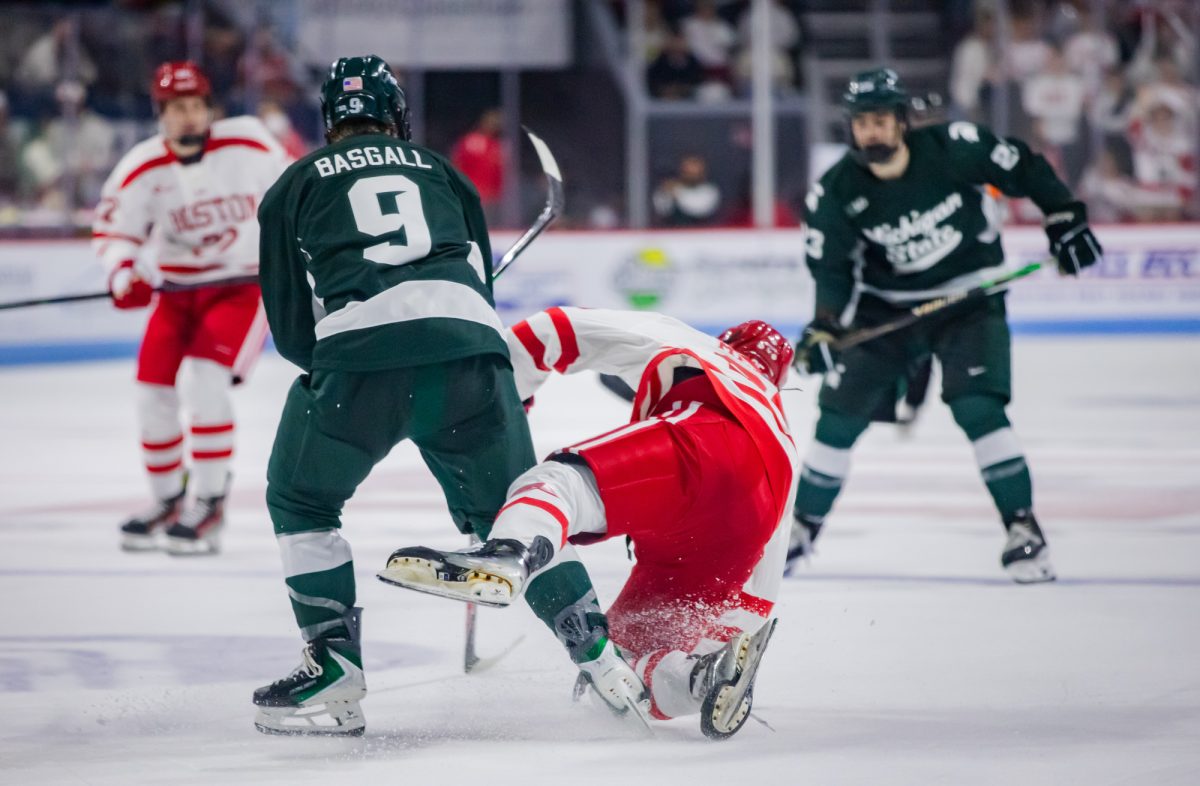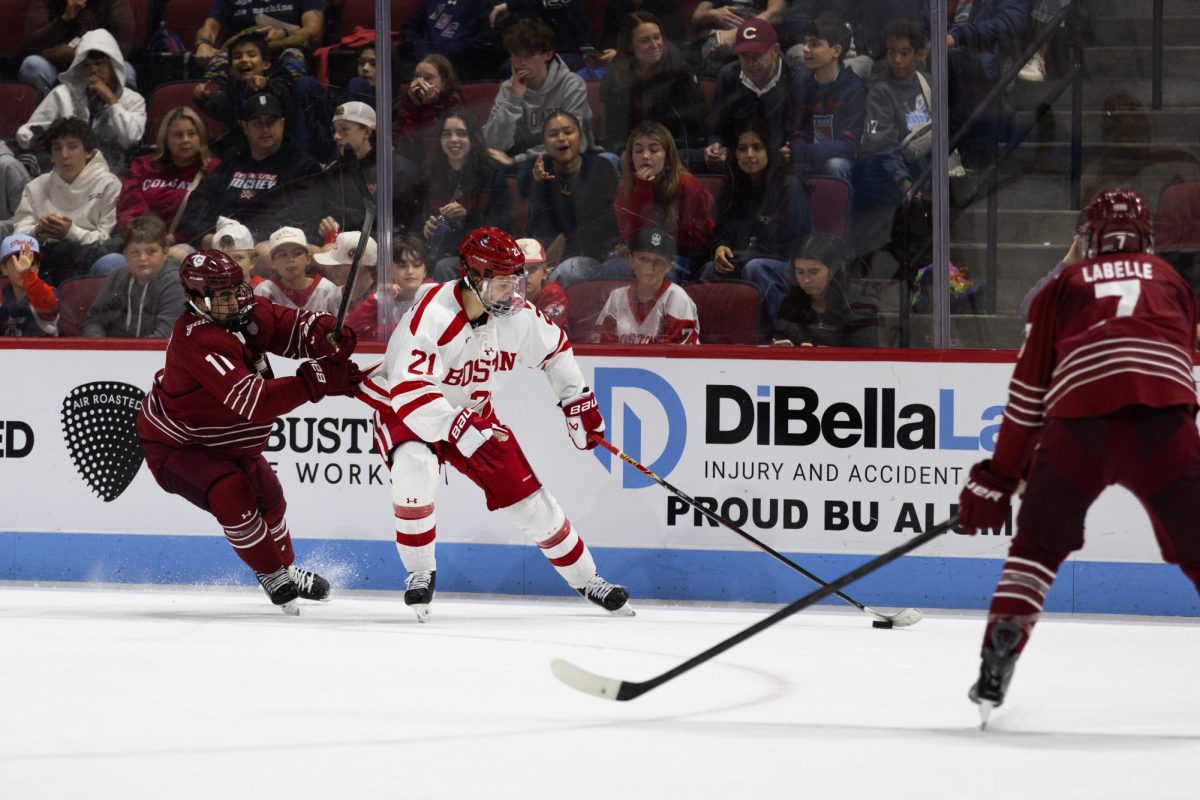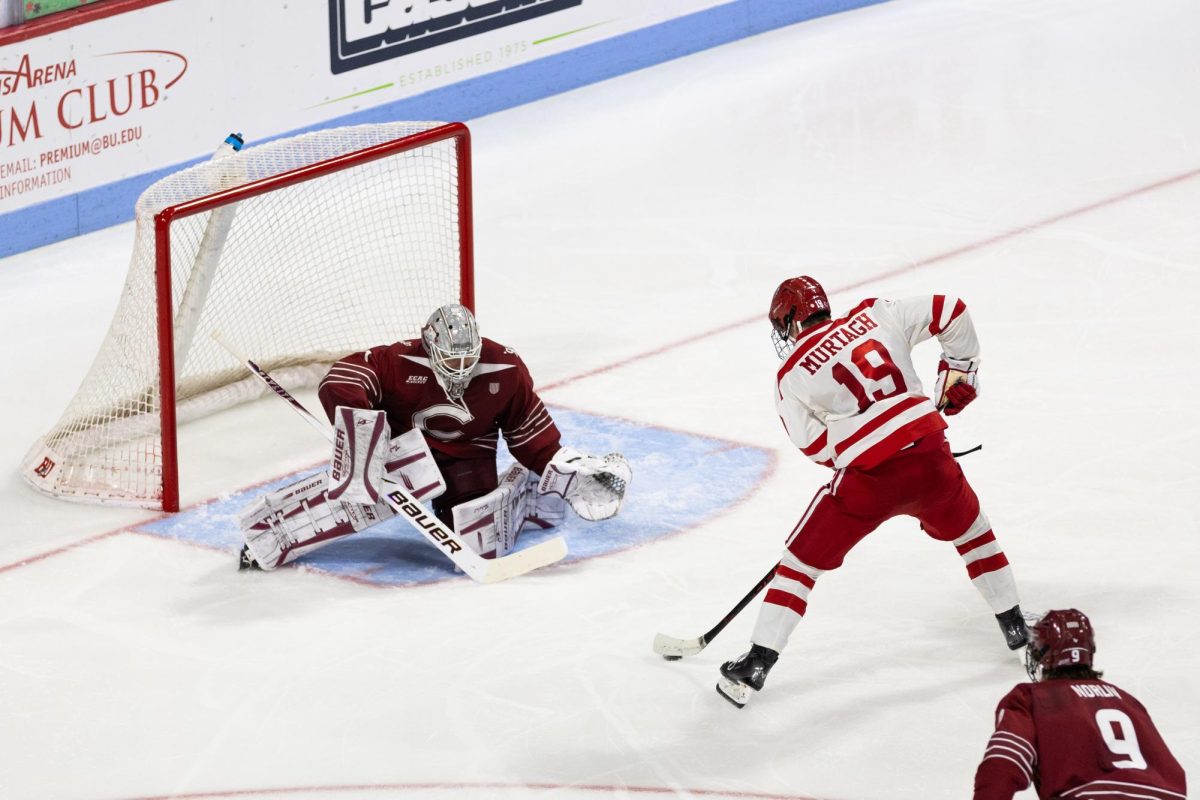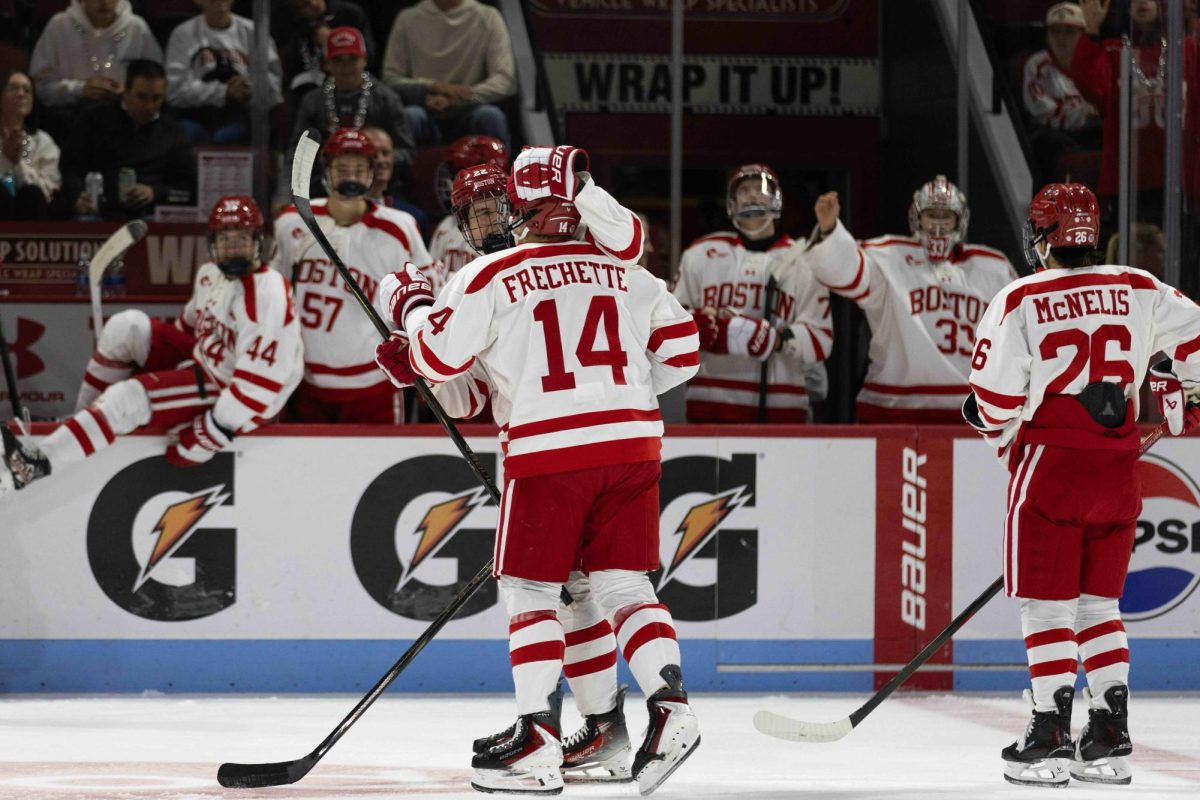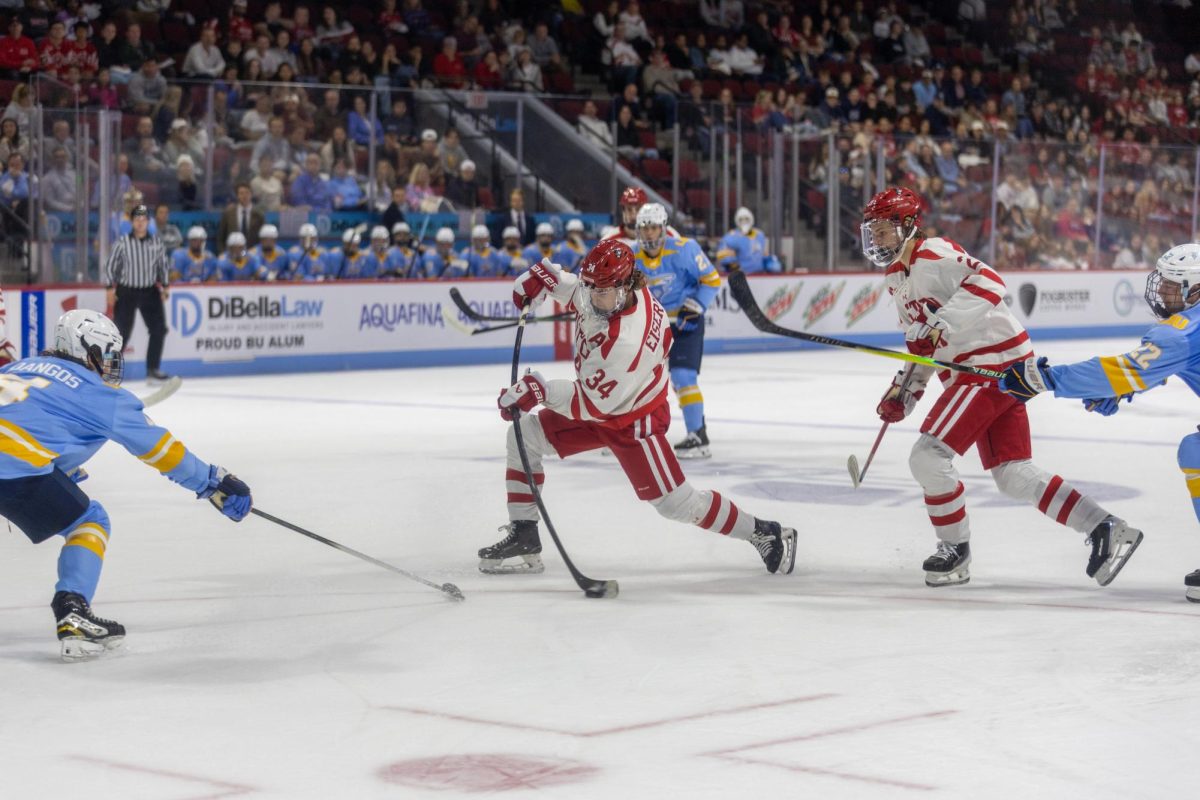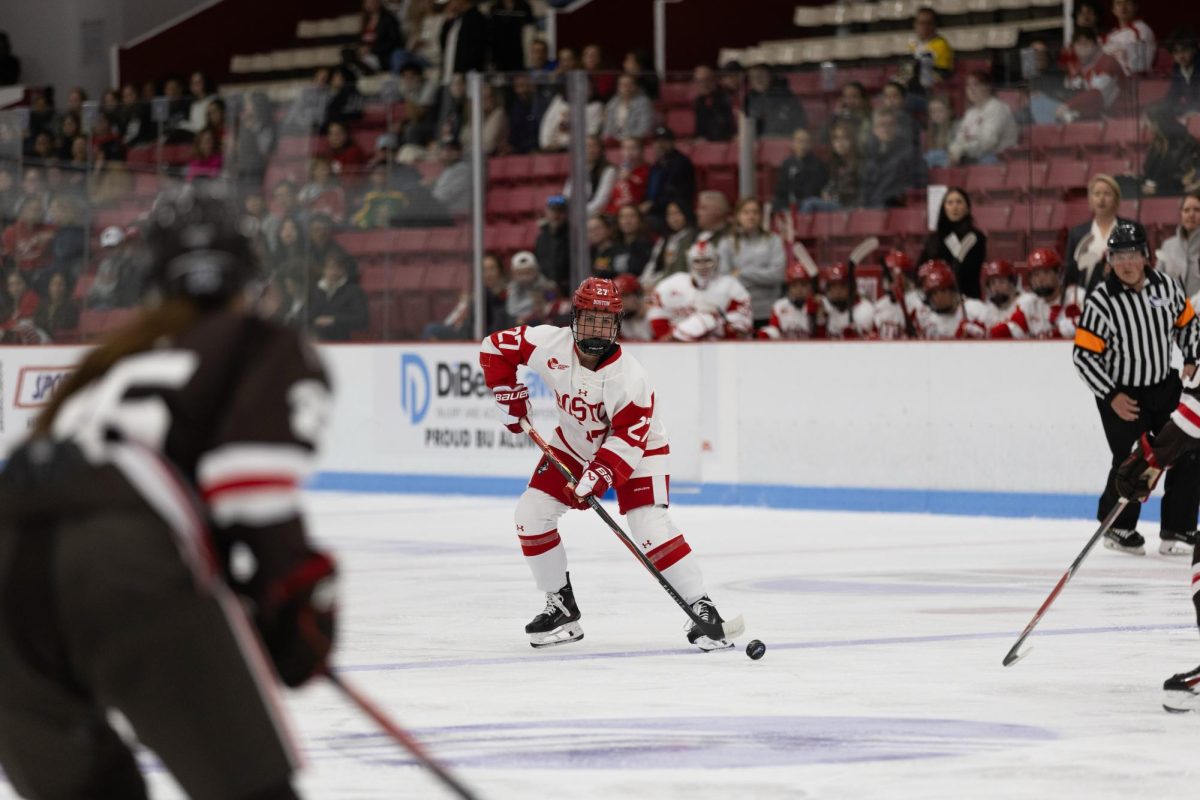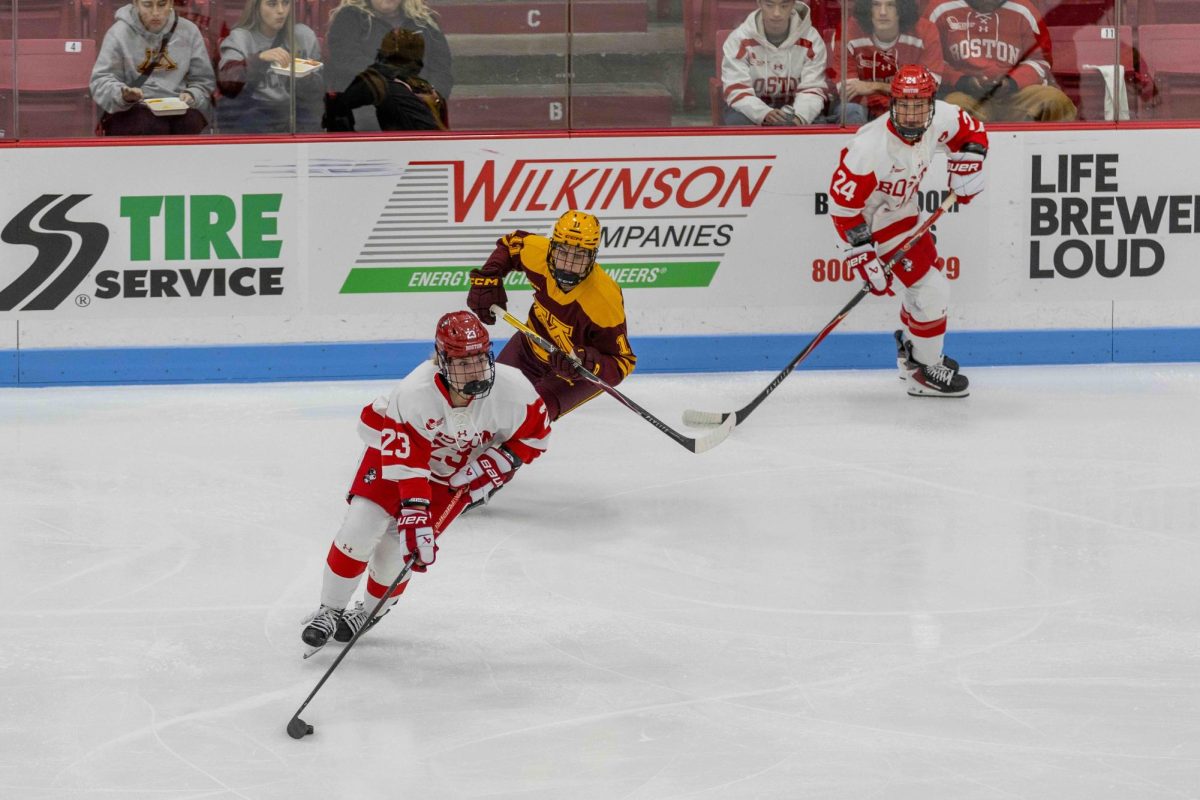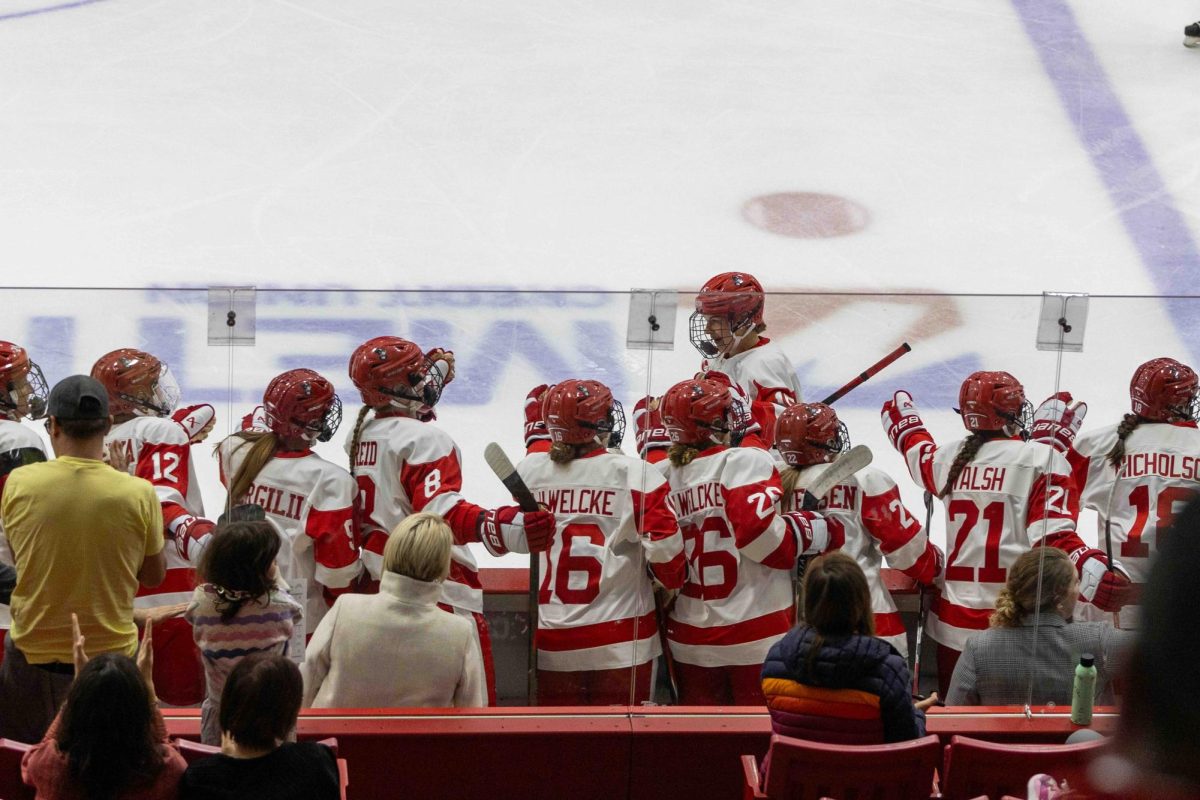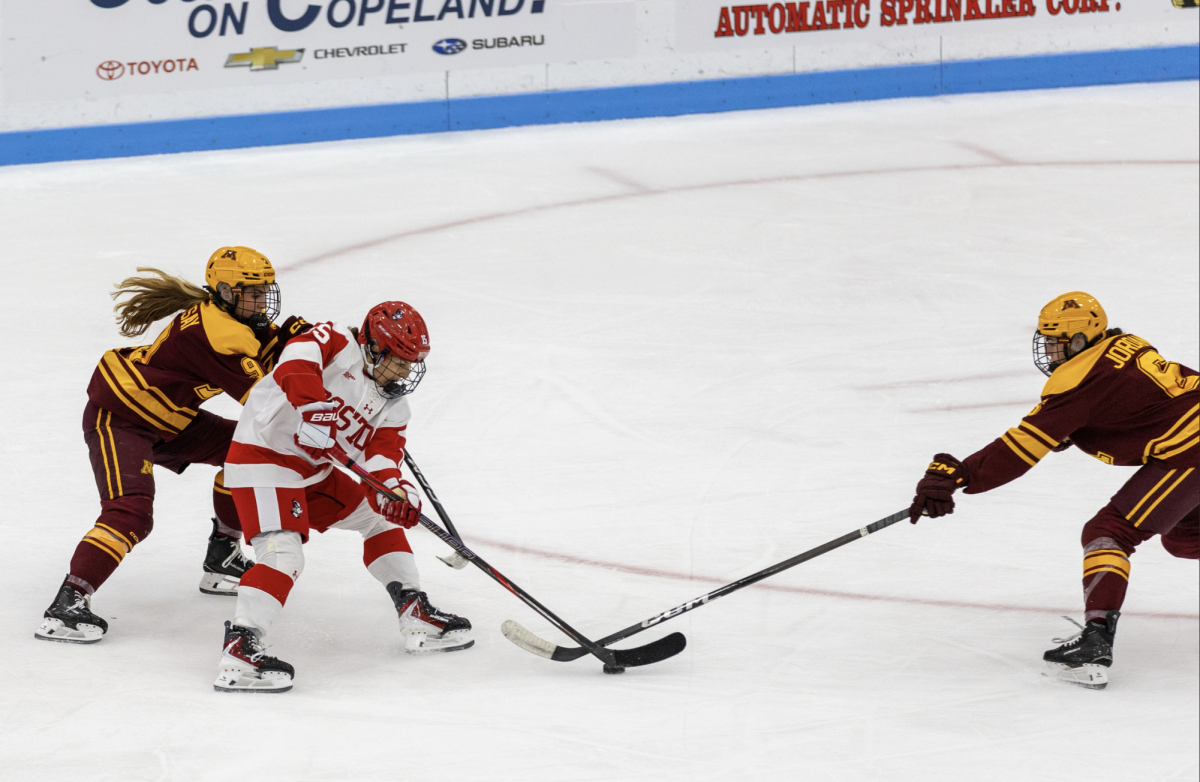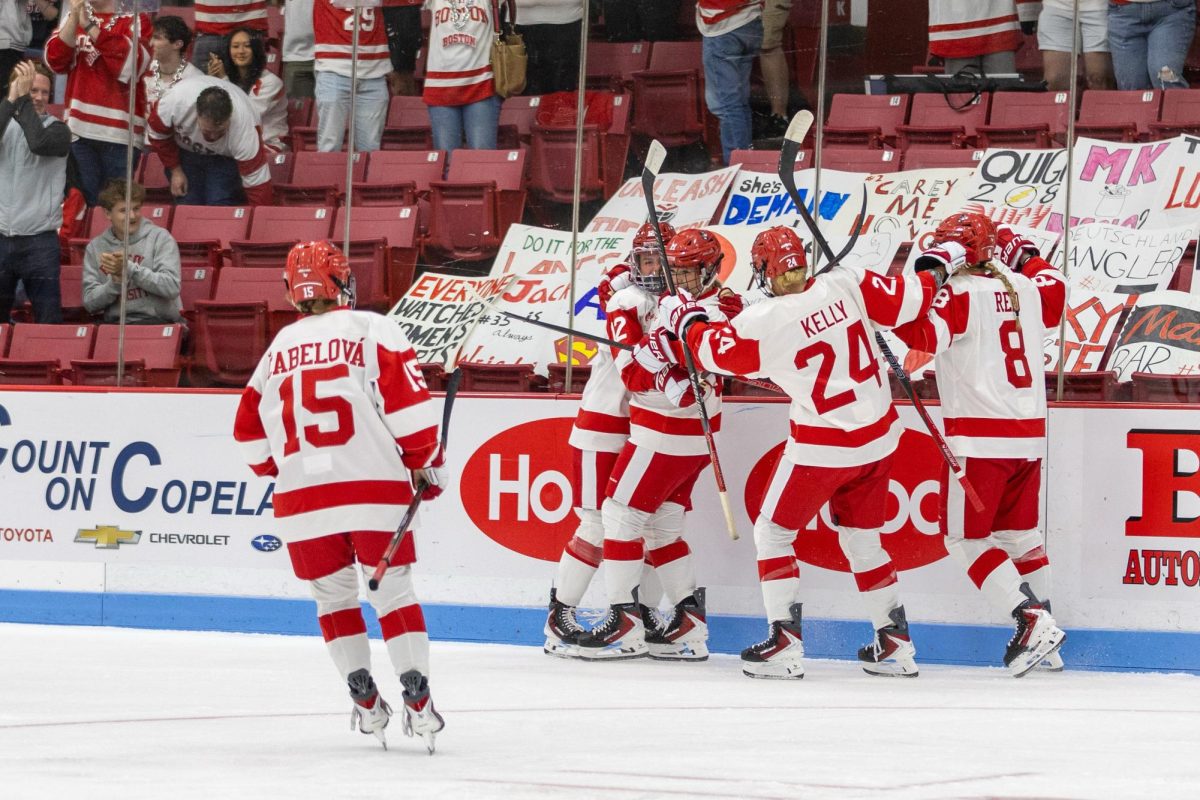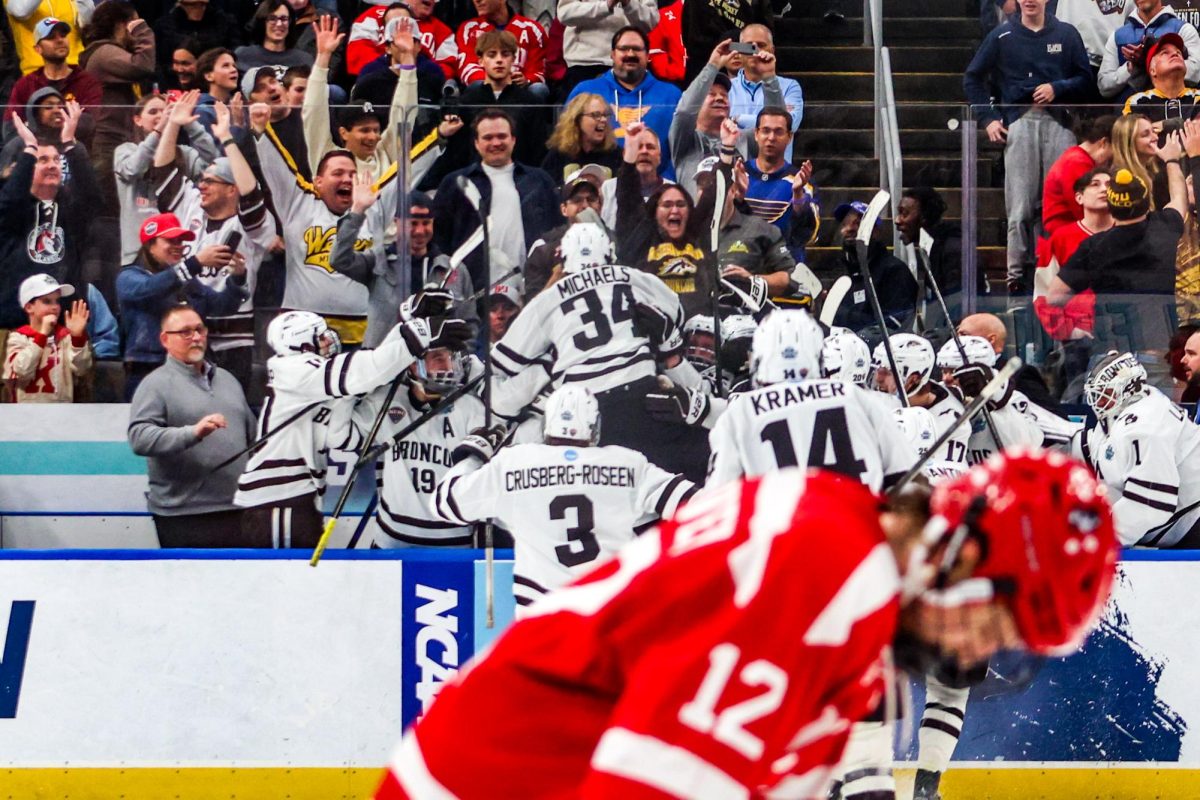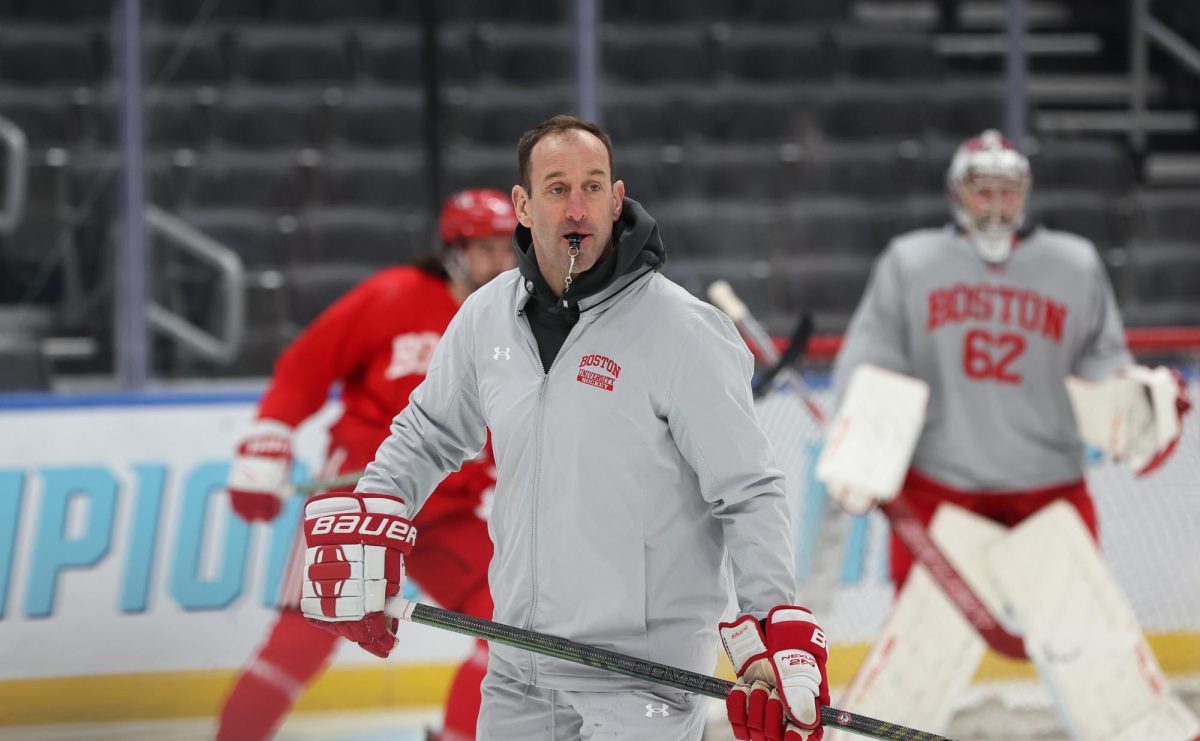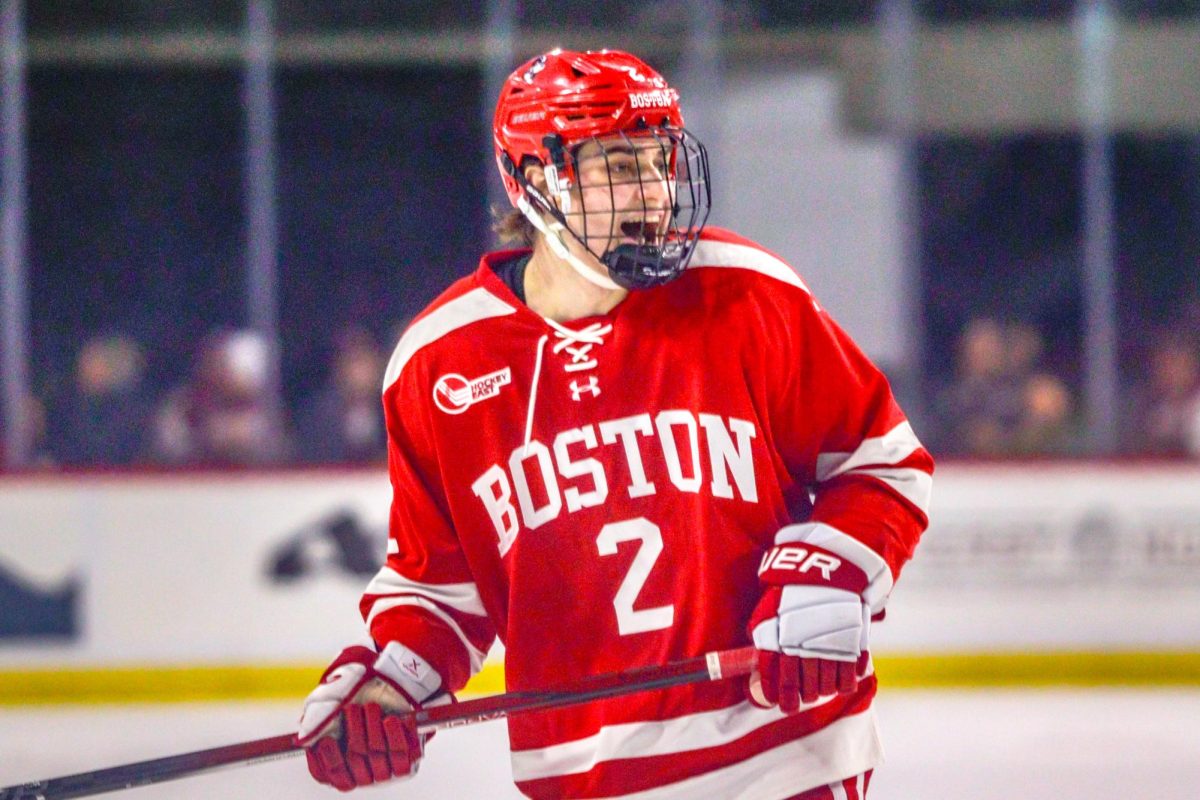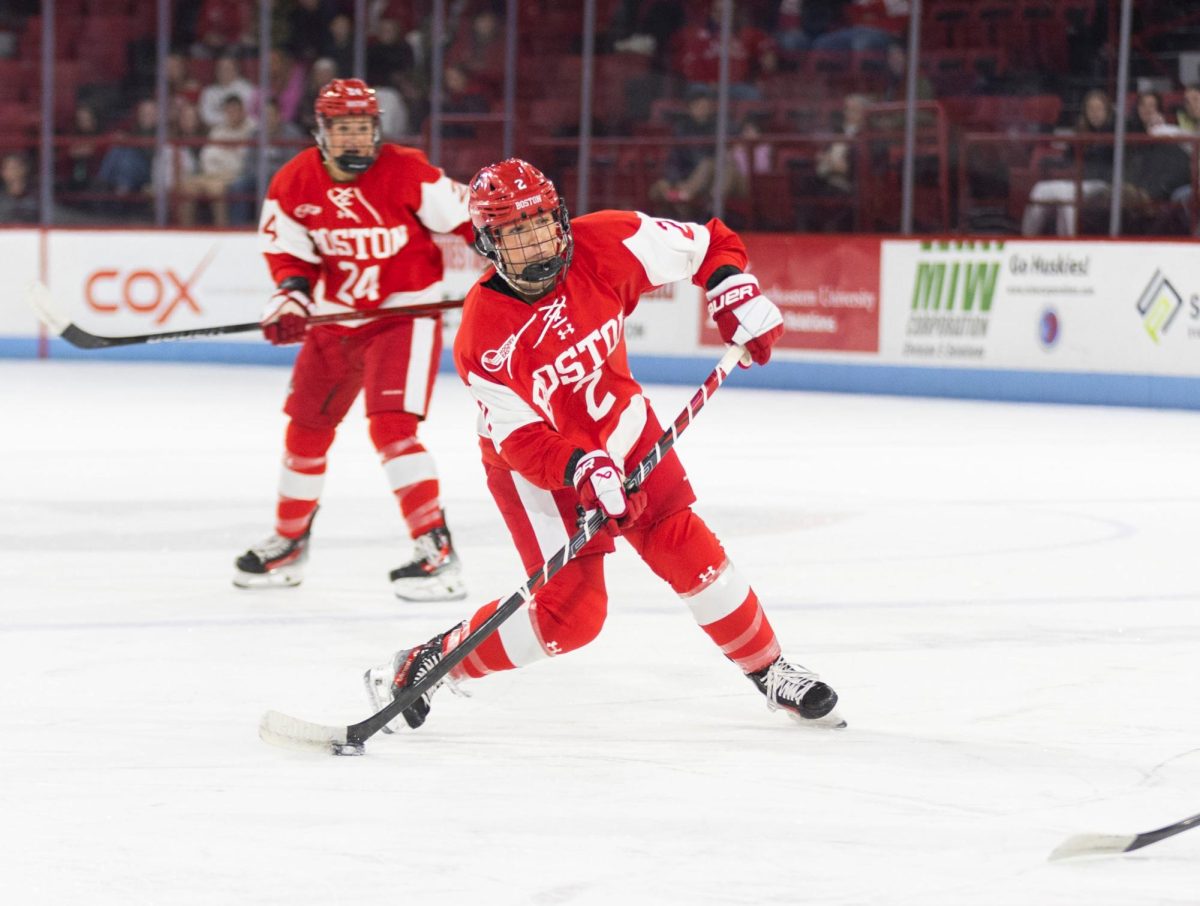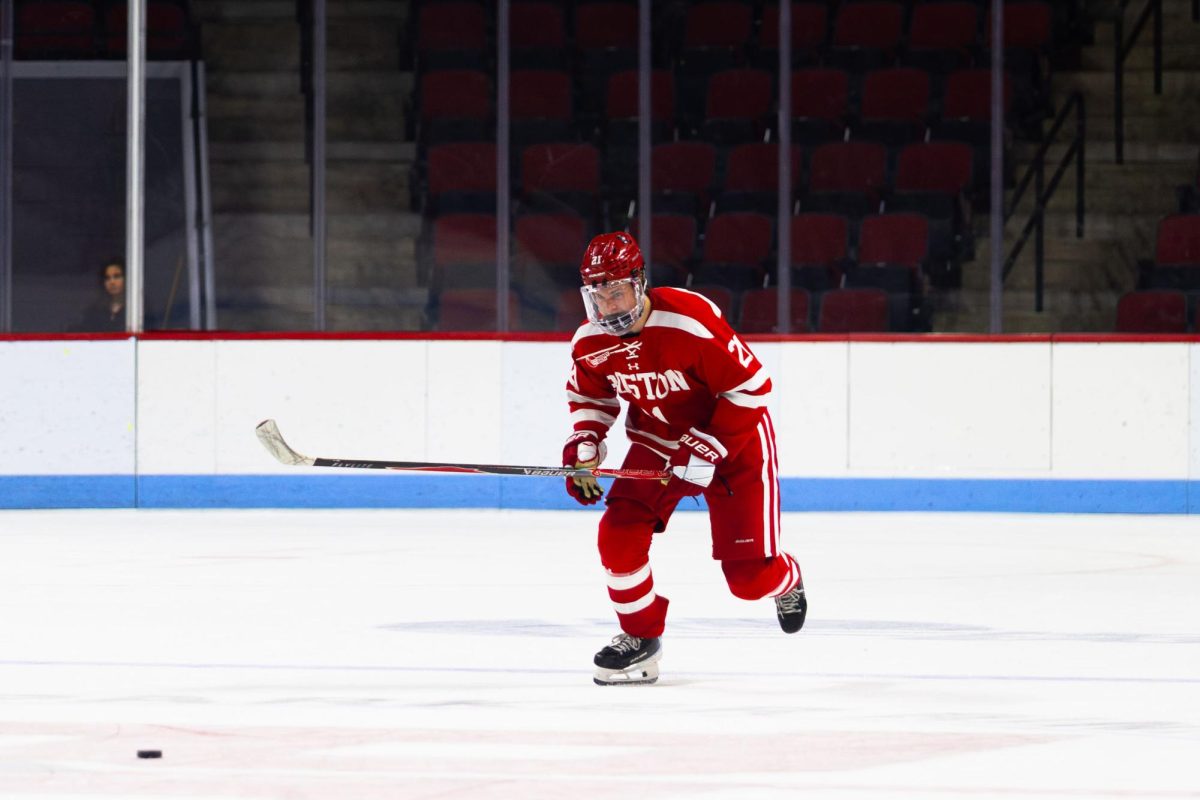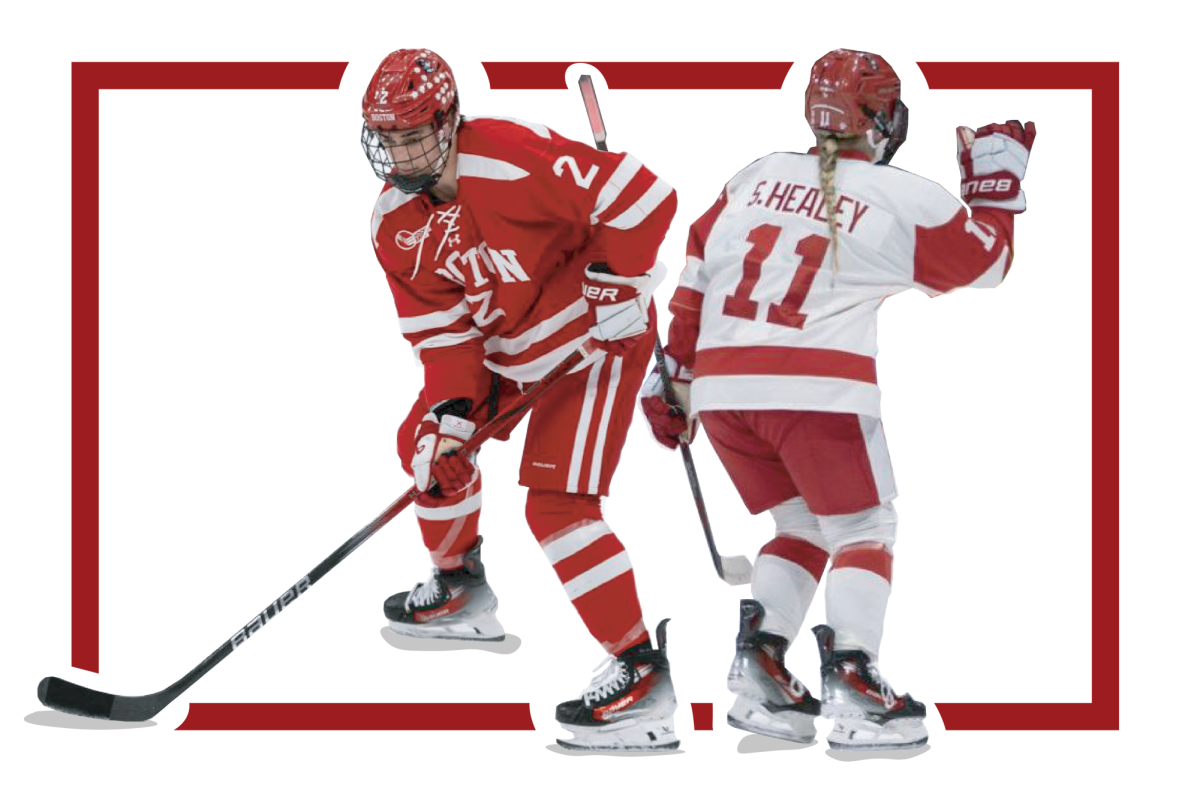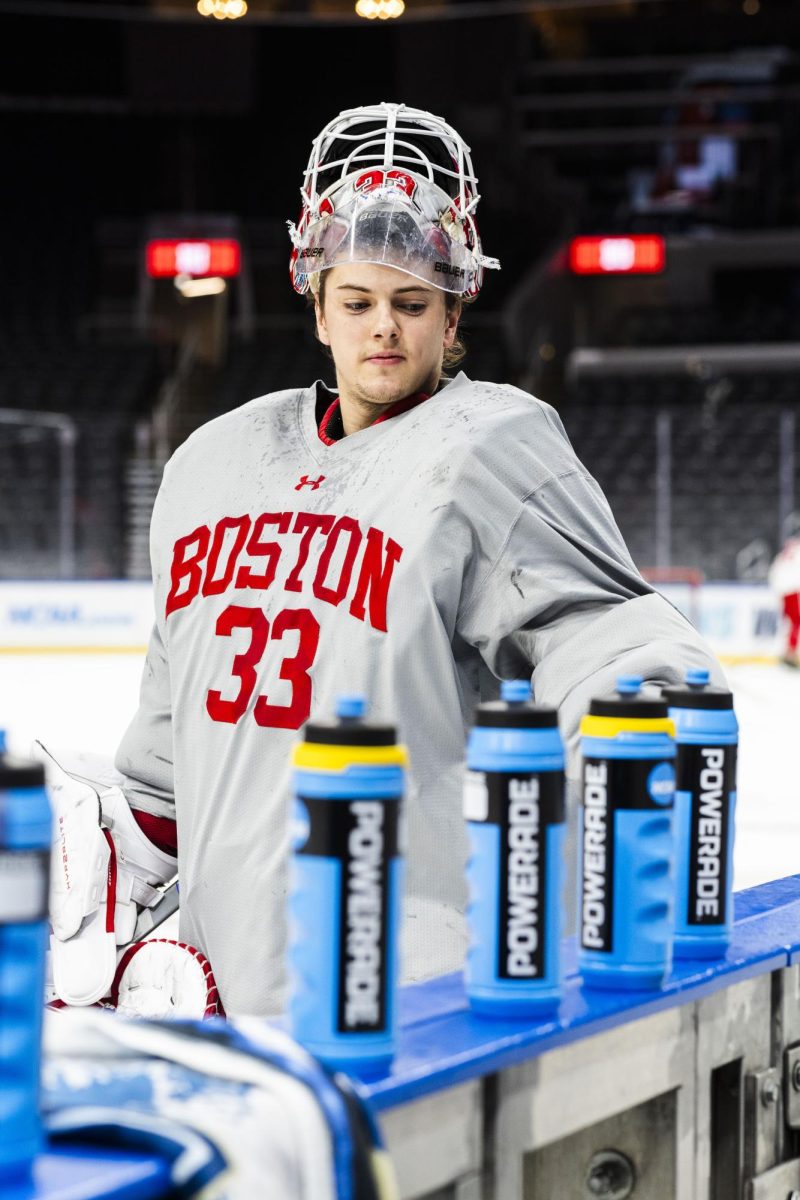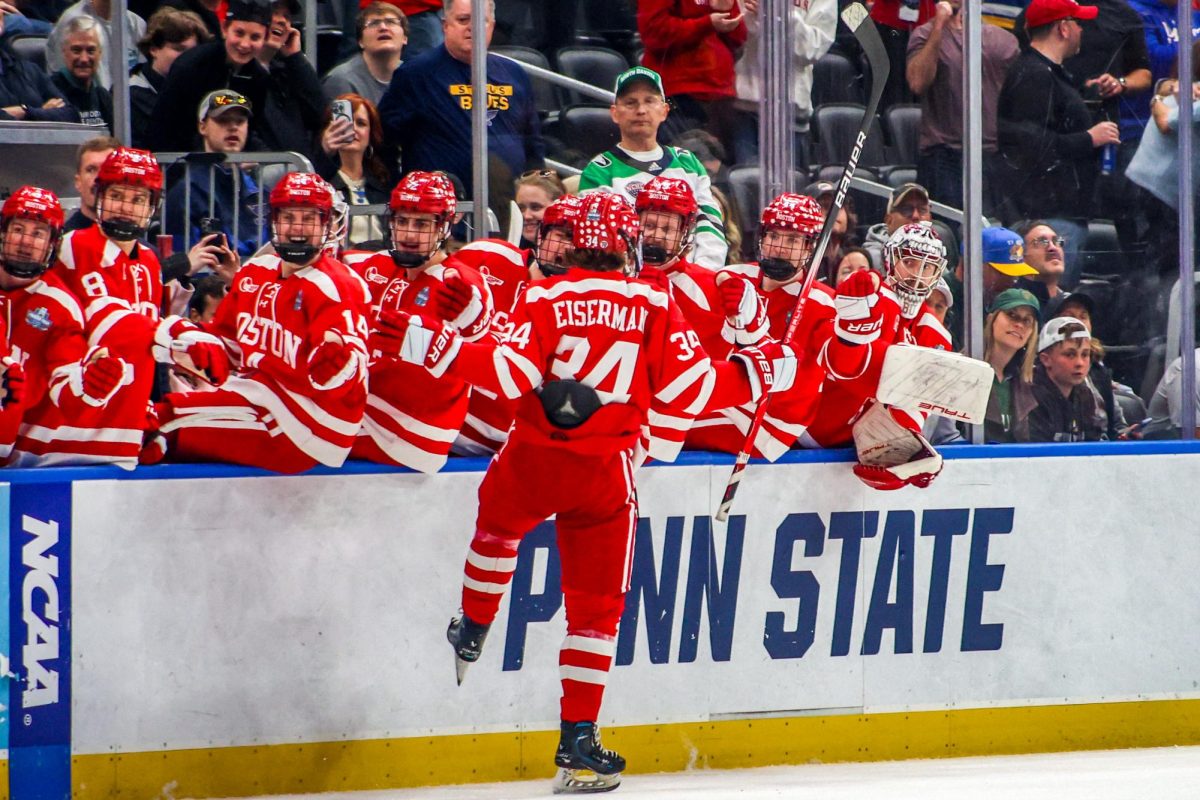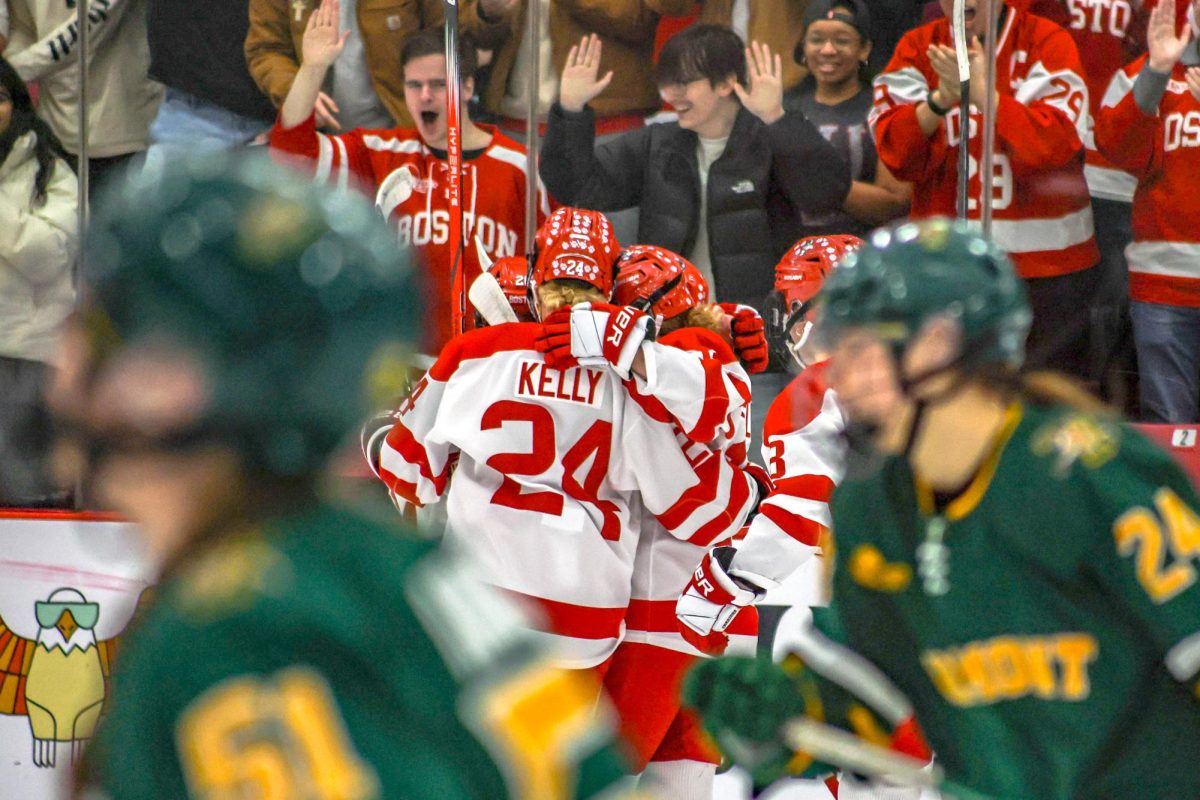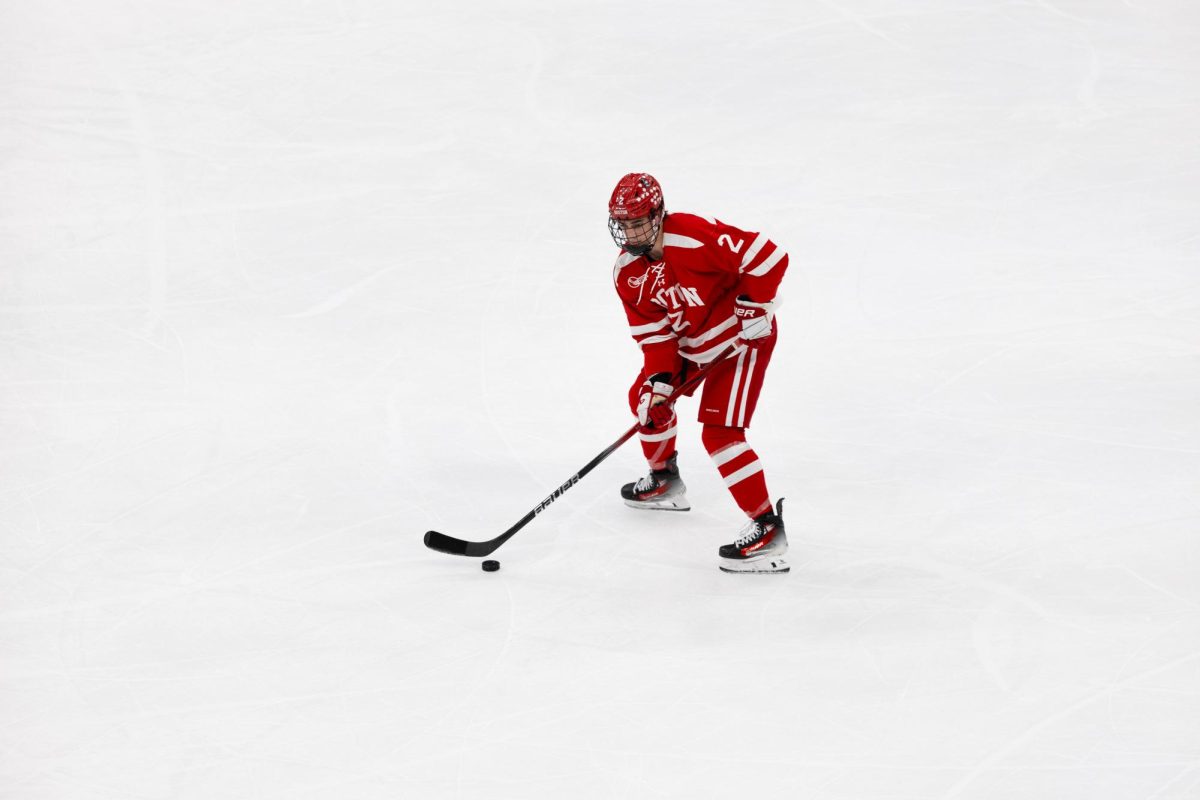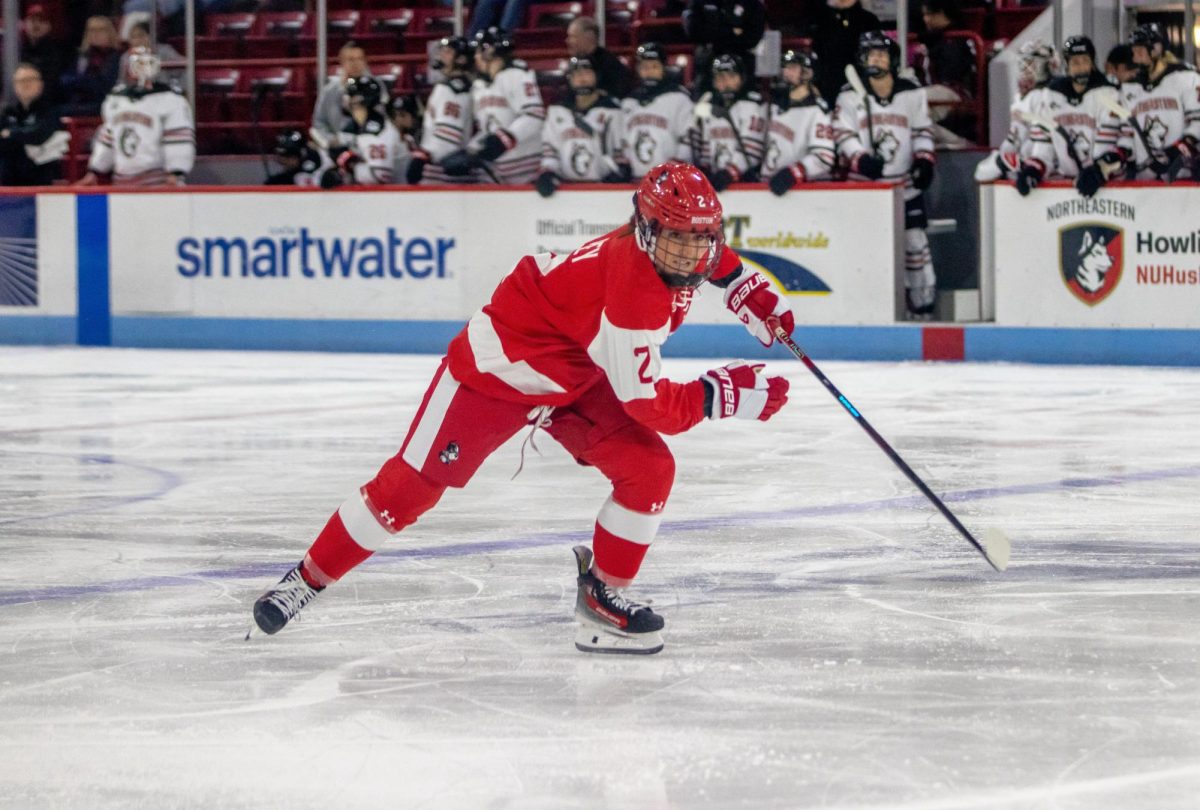By James Garrison and Mark Fraenkel
This article is part of the 2022-2023 printed “Hockey Edition” that will be available on campus Friday, Sept. 30 and at both men’s and women’s opening nights. Be sure to get your copy!
55 years ago, Boston University men’s hockey announcer Bernie Corbett went to his first hockey game. From that point on, he was hooked.
The Stoneham, Massachusetts native’s life has been dedicated to BU Hockey. Corbett served as a student manager under the legendary coach Jack Parker while an undergraduate on Commonwealth Avenue.
On game days, Corbett is seated in the press box of Agganis Arena. For the past four decades, he’s had an all-access view to the triumphs and tribulations of Terrier Hockey – ty. Two national championships and twenty Beanpot championships to name a few.
“I saw my first college hockey game in 1967,” Corbett said. “My mother, father they went to all the games, we got season tickets when they opened the rink.”
Following his graduation with a degree in Political Science, Corbett first started announcing games on the radio in 1983 and later on into the simulcasts of BU Men’s hockey games. Once again, Corbett will be along for the ride as college hockey enters the ESPN+ streaming world this upcoming season.
The transition to ESPN+ represents the significant strides that college hockey has taken in recent years relative to the rest of the hockey world. For Corbett, a front seat to the game that he has been infatuated with from an early age has allowed him to see much more than just changes to the media side of things.
“I think an important and fundamental distinction to make is the influence of the pro game on college hockey,” Corbett said. “Of course that in conjunction with the expansion of the National Hockey League. In 1967, they doubled the size of the league so all of a sudden you get twice as many jobs at the NHL level.”
With another 20 teams and around 500 new jobs in the NHL since that era, the effect of expansion has only continued to bring collegiate players to the professional ranks. The continued growth of college hockey, as well as the game of hockey overall in the United States, has caused a trickle-down effect, growing high school as well as junior hockey.
“Say a guy played at Melrose High School and then he went to Phillips Andover for a year and then he came to college. He was a year older, it’s like, ‘oh wow, he’s a year older – he’s 19,’” Corbett said. “Guys now are playing two, three years of junior hockey, and they’re going to college hockey, they’re 20 and 21 year-old freshmen.”
The combined impact of the growth of the college game and USA Hockey over the past 20 years has given rise over the past 20 years to high-level American junior leagues. Top leagues like the USHL and the NAHL, as well as lower-level leagues like the USPHL and EHL have all contributed to the development of collegiate hockey players.
Such leagues have allowed for longer development periods, giving rise to the aforementioned “21 year-old freshman.” Through Corbett’s eyes, a dynamic has been created in which a fine line has been drawn for players.
“Having 32 NHL teams has affected the college game,” Corbett said. “We still lose guys who play major junior and decide to not have college as an option…It’s led to a situation where, and you know, you live in it in BU. In terms of always walking the line of recruiting guys that are going to be one and done.”
In recent history, that line has not always been walked carefully enough for a program that has seen top players like Jack Eichel, Trevor Zegras, and Joel Farabee make Comm. Ave a one-stop shop en route to an NHL roster spot.
This season though, a highly motivated Terriers squad under new leadership has bucked that trend with ten seniors (four of whom are drafted), seemingly locked in for a “prove-it” final season. A mix of high-end skill, solid leadership, and high-energy players is essential for a team’s success in the eyes of the man who’s been a Terrier at heart for 55 years.
“The best team is going to win the national championship,” Corbett said. “That’s going to be teams that have discovered that formula to have that blend of blue chip guys, elite guys, a couple of those guys… You’re going to have something pretty special.”
Whether or not the 101st collection of Terrier hockey players possess that formula will be put to its first test on October 1st when the season opens against Bentley University.

